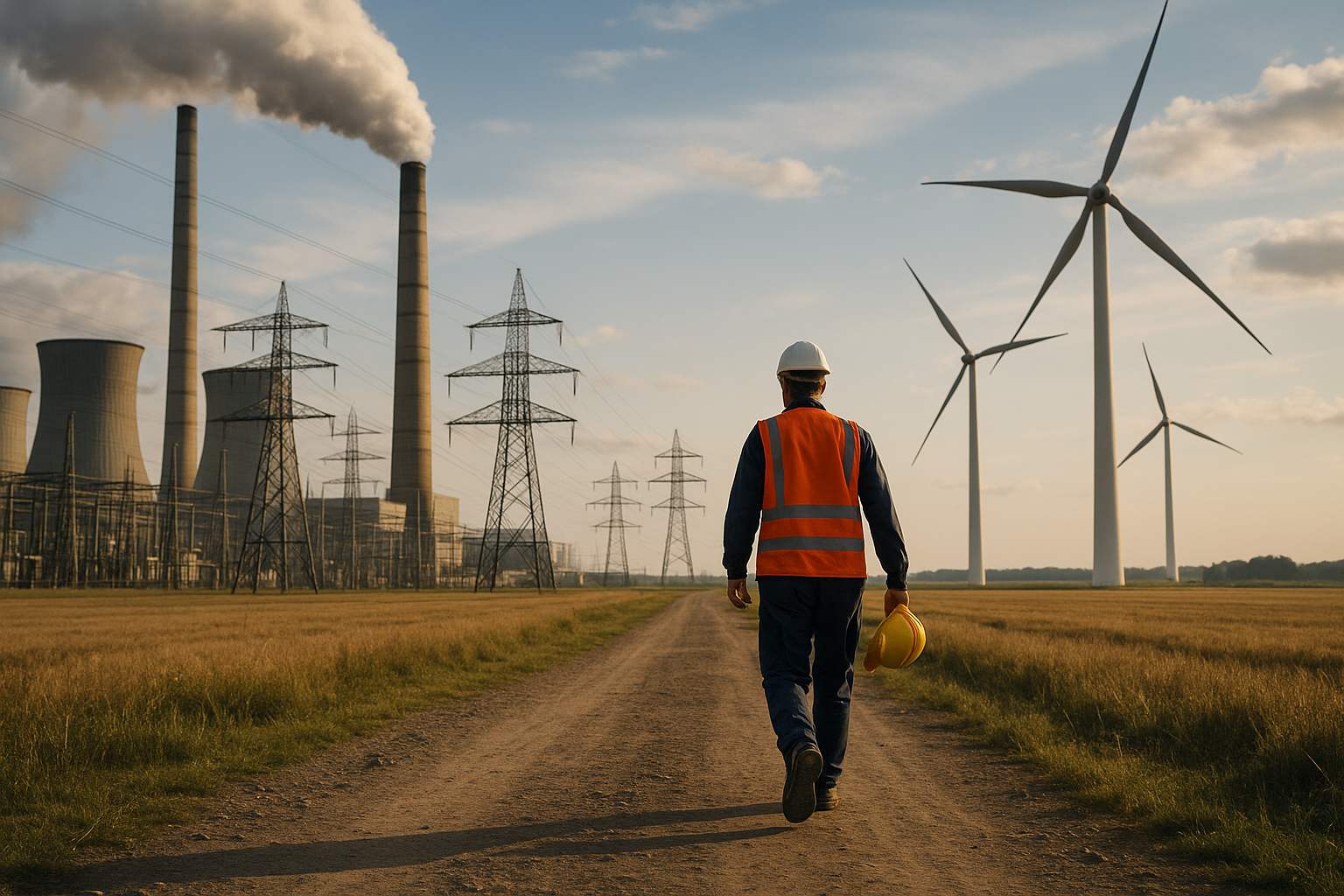Green Transition Risks Job Loss Without Fixing Labor Market Frictions, Says Report
The World Bank and Planet Vertical warn that the green transition will not automatically create jobs, as deep-rooted labor market frictions—skills gaps, geographic immobility, weak job-matching, financial barriers, and social inequalities—threaten to leave workers behind. The study urges urgent investment in reskilling, mobility support, financial safety nets, and inclusive institutions to ensure green growth becomes genuinely job-rich.

The World Bank’s Development Research Group, working in collaboration with the Planet Vertical program, has issued a striking warning that the green transition will not automatically deliver the jobs its advocates promise. In a new working paper, Five Frictions: Key Labor Market Barriers to Unlocking Job Growth in the Green Transition, authors Camilla Knudsen, Fernanda Senra de Moura, Joris Bücker, and Penelope Mealy argue that entrenched labor market barriers could undermine the very premise of sustainable growth. Far from being a straightforward engine of employment, the low-carbon shift is a disruptive transformation that demands rapid labor reallocation across industries, geographies, and skill sets, an upheaval that clashes with the realities of existing markets. Unless governments and institutions move swiftly, millions of workers risk exclusion from the new economy.
Skills Gaps at the Heart of the Transition
The report opens with a stark diagnosis: workers in fossil fuel sectors often lack the skills demanded by renewable energy, clean technology, or climate-resilient agriculture. Traditional reskilling programs, where they exist, are fragmented, underfunded, and poorly aligned with industry needs. The mismatch threatens to leave communities stranded at precisely the moment when opportunities should be expanding. In industries such as wind power or solar manufacturing, technical expertise is critical, yet coal miners, refinery staff, or truck drivers are often unprepared for these new roles. Unless education and vocational systems undergo a wholesale reorientation, the promise of green jobs will remain out of reach for many. The authors underline that training must be anticipatory, not reactive, building skills pipelines before layoffs reach their peak.
Geography as a Silent Barrier
Beyond the classroom, geography looms as a silent but stubborn barrier. Renewable energy plants are not set up in the same locations as coal mines or oil fields. Solar farms spread across arid plains, wind parks line remote coastlines, and hydro projects cluster around rivers. But the workers most in need of new opportunities are often rooted in industrial towns far removed from these new hubs. The report points out that immobility is rarely a matter of unwillingness; rather, it reflects the cost of moving, the pull of family, inadequate transport, and housing shortages. Without policies that actively support relocation, ranging from housing assistance to regional development plans, the transition could deepen regional inequalities, creating pockets of despair in fossil-fuel-dependent areas.
When Jobs Exist but Workers Can’t Reach Them
The third major friction identified is the inefficiency of job matching. Even when green jobs are available, workers often cannot find them. Employment services in many countries remain outdated, reliant on paper systems or fragmented digital platforms. Career guidance is minimal, labor market information is poorly disseminated, and informal networks determine access. This means workers frequently do not know what positions exist, what skills are required, or how to apply. In developing countries, where informality dominates, the disconnect is even sharper. The study makes the case for modernized employment services, harnessing digital tools and real-time labor data to guide workers into new opportunities. Without such systems, job creation risks remaining on paper, invisible to those who need it most.
Financial and Social Obstacles to Change
Even where skills align and information is accessible, financial constraints often block transition. For workers living paycheck to paycheck, leaving a job to retrain or relocate can be unthinkable. Tuition fees, lost wages during training, and relocation expenses act as insurmountable hurdles. The report emphasizes that unemployment insurance, stipends, and concessional credit are not luxuries but necessities for enabling adaptation. Equally pressing are institutional and social barriers. Rigid labor laws, entrenched informality, and discrimination ensure that women, young people, and marginalized communities face an uphill battle to access green jobs. Entire populations risk exclusion if inclusivity is not placed at the center of transition policies. Without interventions to close gender gaps and recognize informal workers, the green economy may replicate old inequalities rather than overcome them.
A Narrowing Window for Action
The study does not deny the potential of the green transition to generate millions of jobs. Rather, it insists that potential will remain untapped without comprehensive policy action. The authors call for mass investments in training programs co-designed with industries, targeted support for mobility, revamped employment services, robust financial safety nets, and inclusive labor institutions. These reforms must be anticipatory, not reactive, to prevent shocks when fossil fuel employment declines more rapidly than expected. The urgency is clear: as countries accelerate decarbonization to meet climate goals, the scale of disruption will only grow. Delay risks locking in inequality and stoking resistance to climate policies. The report’s conclusion is both a warning and a call to action: green growth will not be job-rich unless labor markets are retooled to meet the demands of a sustainable future. In short, the human dimension of the transition is not secondary but central, and failure to address it could derail both economic opportunity and climate ambition.
- FIRST PUBLISHED IN:
- Devdiscourse
ALSO READ
Women Climate Leaders Network Calls for Bold Action to Drive Europe’s Green Transition
Government Redefines Renewable Energy Bidding: Stricter Compliance for Better Transparency
U.S. Services Sector Stagnation: Tariffs and Labor Market Woes
Stalled Labor Market: The Impact of Data Shortages and AI
SA Auto Week 2025 Drives Innovation, Localisation and Green Transition










